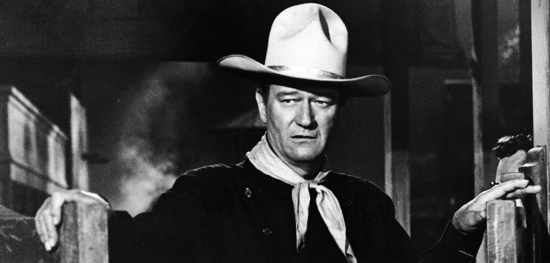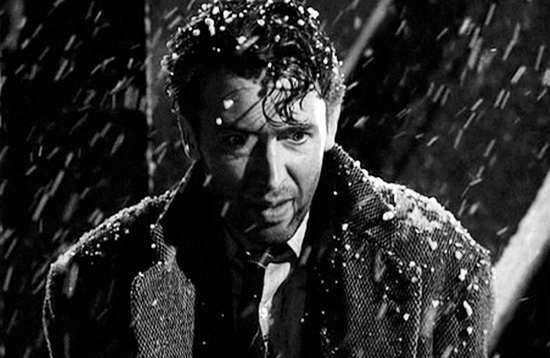John Ostrander: American Pop Idol
It’s getting to be the Fourth of July and so it’s apropos to think about this country, what it is, what defines it, what makes it America. Those are somewhat large topics for an essay of 500-700 words (which is where I usually clock in) so we’ll just confine ourselves to one small area.
We deal with pop culture here at ComicMix so let’s think of pop culture icons, those things that we use as symbols of this country. We’re going to focus on one – American movie star/icon John Wayne. Marion Robert Morrison (Wayne’s borth name) made gobs of movies, usually westerns, war movies and detective films. He was a star in the old fashioned Golden Age of Hollywood sense of the word. No one was bigger.
Everybody and his/her brother does an impression of Wayne. My brother does one and I have different versions. In addition to Wayne himself, I do Elmer Fudd imitating John Wayne and lately I seem to be doing an impression of Del Close doing an impression of John Wayne. I also have a version that melds Wayne and Paul Lynde but perhaps the less said about that one the better.
I was not always a fan of the Duke, especially in the 60s and 70s. Wayne was unapologetically right wing and I was (or became) a liberal pinko commie hippie sort of guy. Well, maybe not an actual hippie but I leaned more in that direction than Wayne ever did.
I have become more a fan of Wayne’s work (but not his politics) and three films stand out for me as complex examples of America: Red River, The Searchers, and The Man Who Shot Liberty Valance. In each, Wayne’s character is an asshole.
In the first, he is pig-headed, self-righteous, and ready to shoot anyone who disagrees with him and that includes his adopted son. In the second, he’s on a year’s long hunt for his niece who was taken by Indians when the rest of her (and Wayne’s) family was massacred in a raid. His character, Ethan Edwards, has a hate so strong that you don’t know if he’s more interested in rescuing his niece or killing the ones who killed his family.
In The Man Who Shot Liberty Valance, he plays Jim Donafin, the only man capable of standing up to and (maybe) killing the notorious outlaw in the title. He’s also a rival to Jimmy Stewart’s Ransom Stoddard, a lawyer who has come to the territory who believes in the law more than the gun, for the hand of Vera Miles’ Hallie.
As Stoddard points out, there’s not a whole lot of difference between Valence (Lee Marvin) and Donafin. Wayne’s character is also a bully, also stubborn, and he’s ready to kill although he’s not the outlaw that Valence is. The movie itself is a portrait of the West at a transition point; the unnamed territory is considering statehood. The ranchers are opposed to the increased limitations they will face while others, such as Stoddard, look for an increase in civilization and the benefits of law, where decisions will no longer be made by the man with a gun.
It comes down to this: is Wayne’s or Stewart’s character the future? While it’s obvious that the answer is, and must be, Stewart’s character, the film has a great deal of respect and admiration for Wayne’s character. Without him, Rance Stoddard would have been dead at the hands of Liberty Valance. Tom Donafin is necessary for civilization to grow but his time is past.
Wayne, in all three films and in others, such as The Quiet Man, is a better actor than he is usually given credit for. The characters in the three films are largely unsympathetic but compelling.
I think I finally understood the power that Wayne has when I saw The Searchers on a big screen, as it was intended to be seen. One shot in particular is a close-up of Wayne, looking hard and mean. I’d watched the movie before on television but here Wayne’s head was damn near two stories high. It was like a cinematic Mount Rushmore and I got it. I understood why John Wayne was – and is – a cinematic American icon. For good and bad, he did and does represent this country both here and around the world.
That’s a hell of a legacy, pilgrim.














